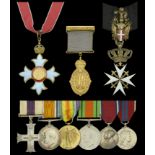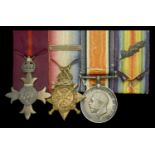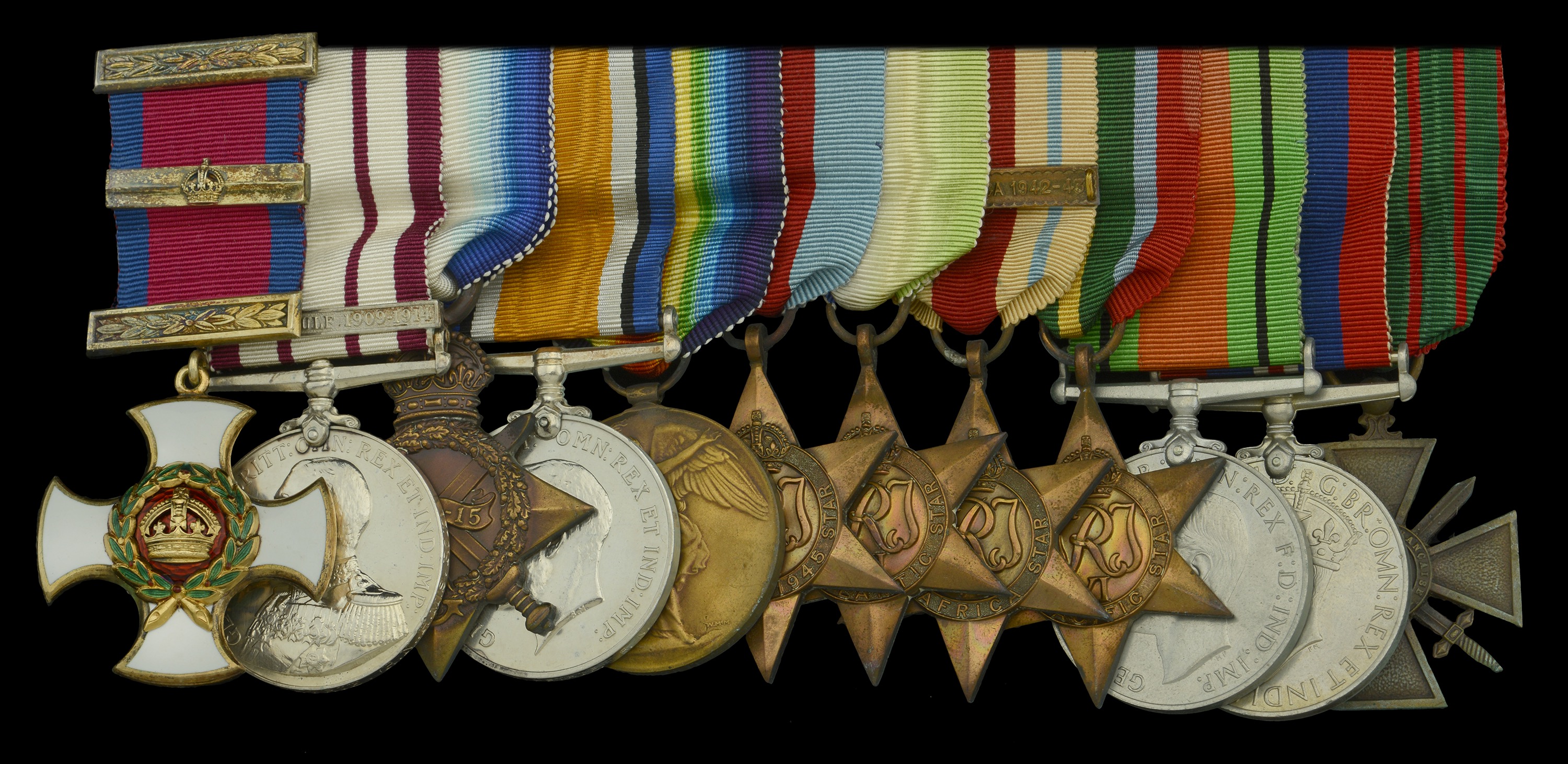A superb Second World War D.S.O. and Bar group of twelve awarded to Captain C. H. Petrie, Royal Navy, commanding H.M.S. Glengyle during the evacuation of Greece and the Battle of Crete, later on the planning staff of the Mulberry Harbour project for the invasion of Europe Distinguished Service Order, G.VI.R., with Second Award Bar, the reverse of the lower suspension dated ‘1941’, the reverse of the Bar dated ‘1942’, with integral top ribbon bar; Naval General Service 1915-62, 1 clasp, Persian Gulf 1909-1914 (Lieut. C. H. Petrie, R.N., H.M.S. Fox); 1914-15 Star (Lieut. C. H. Petrie R.N.); British War and Victory Medals (Lieut. C. H. Petrie. R.N.); 1939-45 Star; Atlantic Star; Africa Star, clasp, North Africa 1942-43; Pacific Star; Defence and War Medals 1939-45; France, Third Empire, Croix de Guerre 1914-1917, mounted for wearing, good very fine (12) £3,600-£4,400 --- Importation Duty This lot is subject to importation duty of 5% on the hammer price unless exported outside the UK --- --- D.S.O. London Gazette 7 November 1941: ‘For gallantry and devoted services in operations in Greek Waters.’ The recommendation for the immediate award of the D.S.O. states: ‘Christopher Henry Petrie, Acting Captain, H.M.S. Glengyle. On the occasion of the embarkation of Crete Force from Sphakia on the night 29th/30th May, Captain Petrie handled his ship with skill and determination and the embarkation arrangements in the “Glengyle” were well organised and skilfully conducted.’ D.S.O. Second Award Bar London Gazette 6 January 1942: Captain, H.M.S. Glengyle, ‘For outstanding gallantry, fortitude and resolution during the Battle of Crete.’ French Croix de Guerre London Gazette 24 March 1919. Glengyle was one of three fast ‘Glen’ Line ships specially equipped with strengthened davits to carry assault-landing craft, and earmarked for Operation ‘Workshop’, the Commando night attack on Pantellaria. In January 1941, Glengyle left Glasgow for the Middle East, in company with Glenroy and Glenearn. Already embarked in Glengyle were the commando forces of Brigadier Laycock, or ‘Layforce’ as it became, including the young Geoffrey Keyes, later to win the V.C. for the Rommel Raid. The objective of ‘Layforce’ was to effect a landing on the island of Rhodes, but this was cancelled because the Germans had landed in Greece, and the ships and craft were needed to evacuate the British and Commonwealth troops from there, and subsequently from Crete. With her specially fitted assault-landing craft, Glengyle played a significant part in these evacuations. When the Germans invaded Crete in May 1941, Laycock’s commandos were sent in and played a gallant but fruitless part in that débâcle. The majority went into the bag and ‘Layforce’ was disbanded at the end of July. The commandos were in a highly demoralised state, perhaps best summed up by some graffiti found on a troop deck in Glengyle: ‘Never in the whole history of human endeavour, have so few been buggered about by so many.’ Christopher Henry Petrie was born in Hertfordshire on 18 April 1889, and joined the Training Ship Britannia in September 1904. He took part in the operations in the Persian Gulf as Lieutenant of H.M.S. Fox, and during the Great War commanded H.M.T.B. 33, and H.M. Ships Phoenix, Skilfull and Miranda. He retired with a Gratuity in the rank of Lieutenant Commander in June 1920. Appointed Commander (Retired) in April 1929, and granted Acting Rank of Captain in November 1939, Petrie returned to active service in command of the Armed Merchant Cruiser H.M.S. Bulolo. In December 1940, he was appointed Captain of H.M.S. Glengyle, a Glen Line ship hired to the Royal Navy as a shore carrier. During the period 24-29 April 1941, Glengyle took part in Operation ‘Demon’, the evacuation from Greece in which 50,672 troops were embarked and brought to Crete. At the end of May, Glengyle embarked further troops of Crete Force during the night from Sphakia, for which Petrie was awarded his first D.S.O. Glengyle next took part in the reinforcement and eventual evacuation of Crete for which Petrie was awarded a Bar to his D.S.O. Subsequently, the ship took part in convoying heavy and light oils to Malta, especially during January 1942, when Malta was hardest pressed. After leaving Glengyle, Petrie was appointed to the planning staff for the Mulberry Harbour project for the invasion of Europe, and was specifically responsible for the construction of the artificial harbours and shelters in the British assault area. Captain Petrie retired in 1945. The Royal Navy was awarded 618 D.S.O.s and only 110 first bars during the Second World War.





